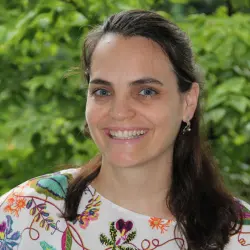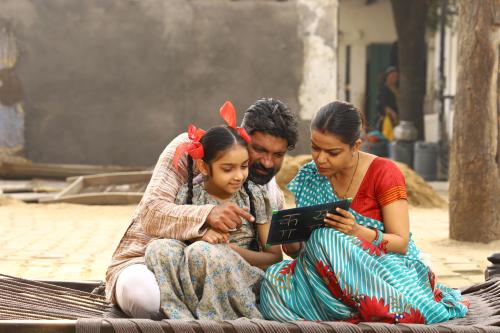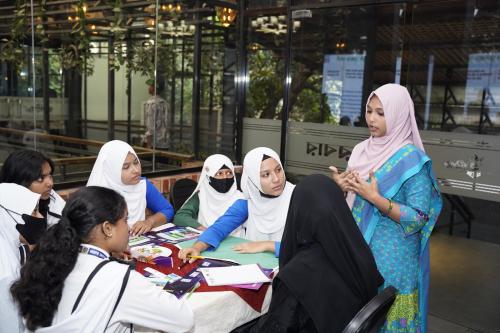Six years ago, the United Nations proclaimed January 24 as International Day of Education to celebrate and recognize “that education plays a key role in building sustainable and resilient societies.” Without education, it would be impossible to achieve the other Sustainable Development Goals of eradicating poverty and social inequities, promoting peace, and advancing climate and environmental action. International Day of Education honors educators, students, and leaders who are the heart of schools, and the families and communities who champion and help schools and learners thrive. Although polarization and distrust between families and educators is a pressing challenge in many countries, International Day of Education reminds us that partnerships between family, schools, and communities are foundational to the history and future of education and to a healthy civic life in society. At the Center for Universal Education (CUE), we have been furthering research on family, school, and community engagement, sharing strategies, and creating tools to inform practice and policy with over sixty collaborating organizations around the world who are part of our Global Family Engagement in Education Network. CUE’s Family, School, and Community Engagement (FSCE) in Education initiative is committed to expanding the research base and dialogue on inclusive and equitable FSCE practices and policies, developing tools to enact evidence-based and community-driven strategies, and fostering knowledge sharing on FSCE with a wide range of actors to catalyze education systems transformation. Our tools and resources for schools, civil society and family organizations, and education leaders make the critical link between families’, students’, and educators’ beliefs on and experiences in education, relational trust, and responsive strategies for building stronger family-school partnerships. Through intentional conversations on beliefs and experiences, schools and communities can develop contextually relevant strategies that center students, educators, and families in educational change. More community-driven research advances the field of family, school, and community engagement and promotes more impactful learning and partnering across education systems and communities. Research that is inclusive and equitable on FSCE ensures that schools, decisionmaking bodies, and civil society organizations have accessible data and evidence to further their efforts and deepen relational trust and partnerships between schools and families, and to help support all students and schools to achieve their desired futures.
Family, school, and community partnerships are a must, not ‘nice to have’
As is elaborated in CUE’s forthcoming publications, FSCE encompasses the many ways that families, educators, and community groups work together to promote student learning and development and to support schools to thrive. Although types of engagement vary depending on the context, the intention is to support greater collaborations and partnerships and to ensure teaching and learning is equitable, inclusive, high-quality, and relevant. Stronger family, school, and community partnerships are critical to education systems transformation and ensuring there are comprehensive and coherent ecosystems to support teaching and learning. A teacher from a rural secondary school in Bangladesh that participated in forthcoming research (to be featured in “Six Global Lessons on How Family, School, and Community Engagement can Transform Education”) captured this sentiment well: “Fulfilling the necessity of education and achieving holistic change with proper engagement involves four pillars/sides: students, teachers, parents, and the broader community. If one of these is weak or broken, the entire system will be affected or collapse. If these sides do not support each other, if there is a lack of interaction, the achievement rate drops. Ultimately, schools and the entire education system cannot reach their expected goals.” CUE’s new research expands on the earlier publication, “Collaborating to transform and improve education systems: A playbook for family-school engagement,” which makes the case for why family, school, and community partnerships are essential for education systems transformation. The Playbook for Family-School Engagement features findings from surveys with 25,000 parents and 6,000 teachers and a Strategy Finder of approaches to family-school collaboration developed and tested by schools and communities around the world. Since launching the FSCE Initiative, CUE has facilitated over 150 workshops and events with a wide range of actors across the global education landscape to support in translating research to practice. Through these convenings, a common theme emerged: school teams, education leaders, and supporting community organizations need comprehensive and easy-to-use tools to understand the perspectives and experiences of their families, communities, and students, develop a shared vision for education, and enact strategies to build stronger partnerships.
New tools and research advancing family, school, and community engagement
Over the next six months, CUE will be releasing a series of open-access tools and research publications with the aim of furthering research, practice and strategies for family, school, and community engagement in communities experiencing some of the greatest inequities. These tools and research were developed together with diverse school, community, and government teams in CUE’s Global Family Engagement in Education Network. They are listed below in order of publication date:
- Global family, school, and community engagement rubrics tool (January 2024): A set of rubrics that school teams can use to assess and reflect on where they are in building family, school, and community partnerships and map where they need to go to make sure their schools are inclusive of all families and supporting school and student outcomes. The Global Rubrics measure four key areas that lead to strong partnerships between families and schools: creating an inclusive culture, building trusting relationships, leveraging families as assets, and sustaining meaningful FSCE practices. The Global Rubrics were developed by a working group of education leaders from five countries based on an approach developed for the Colorado Department of Education in 2020.
- Conversation starter tools: A participatory research guide to building stronger family, school, and community partnerships (February 2024): A suite of community-driven, participatory research tools that guide school and community teams in studying and exploring family, school, and community engagement in their context. The suite includes contextualization guidance, exploratory surveys, focus group discussion guides, and other tools. The Conversation Starter Tools were developed and piloted with research collaborators in 16 countries across six continents.
- Relational trust scale for families, schools, and communities. Developing strong relational trust between families, communities, and schools is at the center of building strong partnerships. Central to the Conversation Starter Tools surveys is a relational trust scale that captures different levels and elements of trust between educators, families, and students. School teams can use this data and scale as an entry point in conversations around how to build trust with their students and families.
- Six global lessons on how family, school, and community engagement can transform education (June 2024): A research report presenting six key global lessons from participatory research with families, educators, and students in the Conversation Starter Tools studies. The six global lessons speak to why families’ beliefs on the role of education differ from their satisfaction with education and how educators are reporting lower levels of trust with families than families with educators. Recommendations suggest how to move beyond blame games and deficit framing of families into assets-based approaches to situate families and communities as allies to schools.
FSCE case study series (June 2024): A series of country and education system-specific policy and research briefs based on learnings from the Conversation Starter Tool research in collaborating countries. The purpose of these briefs is to provide key recommendations for education system leaders and partnering institutions on how to build strong family, school, and community partnerships using and evaluating data and strategies from their context. CUE is also excited to announce that on June 4, 2024, we will convene for the first time at Brookings a Global Symposium on Family, School, Community Engagement. At this daylong event, collaborators from around the world will come together to share insights from global research and strategies on family, school, and community engagement. Participants will take part in a series of dynamic conversations and workshops with family, school, and community partners exploring how to use evidence to develop a shared vision of the purpose of school and new strategies and policies for building stronger partnerships. As the world celebrates International Day of Education and reflects on the pressing need to improve and transform education systems to better serve all students and communities, we hope these tools and resources shed light on the critical role that families and communities play in supporting students and schools to thrive and offer actionable guidance for how to build stronger partnerships. As the FSCE initiative continues on this journey of bringing families and communities into research and collaboration at the center of education systems transformation, we have been asking educators, families, students, and education leaders around the world about the most pressing needs they are facing today. Parents, teachers, and students from Australia, Bangladesh, Brazil, Colombia, England, Netherlands, Sierra Leone, the US, South Africa, and Tanzania (Zanzibar) have all emphasized a need for greater focus on the well-being of students, families, and educators. One key question that will guide us as we move forward is: What do you think are pressing issues within family, school, and community engagement in education today? We welcome inquiries about the upcoming Global Symposium on Family, School, and Community Engagement and comments, feedback, and suggestions on the above tools and research reports as they are released at [email protected].
The Brookings Institution is committed to quality, independence, and impact.
We are supported by a diverse array of funders. In line with our values and policies, each Brookings publication represents the sole views of its author(s).









Commentary
Why families and communities are central to education system transformation
New research, tools, and strategies
January 23, 2024